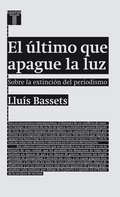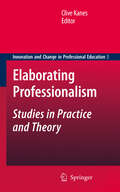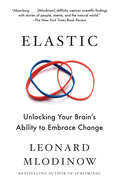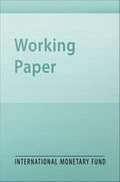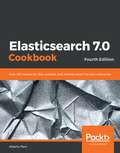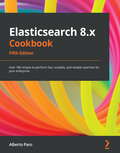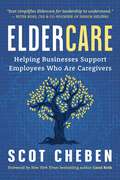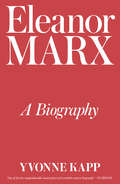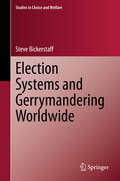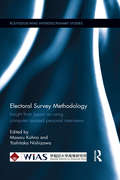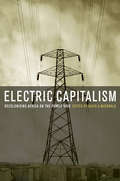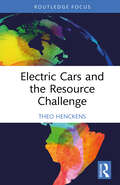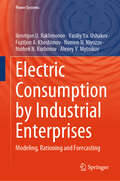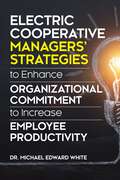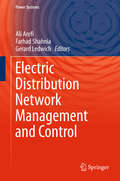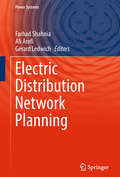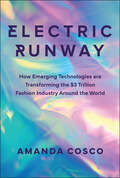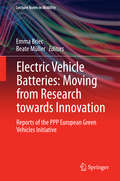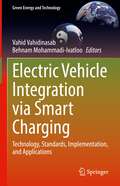- Table View
- List View
El último que apague la luz: Sobre la extinción del periodismo
by Lluís BassetPresenciamos la decadencia de la prensa escrita y de la cultura tal como la conocemos, y los periodistas tienen la última palabra. El periódico impreso va a desaparecer. Y lo hará pronto, antes de lo que creíamos. Con él van a desvanecerse o transformarse muchas otras cosas. El periódico ha sido durante una larga época la imagen del mundo y su conciencia, la escenificación diaria de la idea de una realidad ordenada y jerarquizada, y un formidable instrumento frente a cualquier poder. Pero los medios cambian porque los ciudadanos que los consumen y usan quieren que cambien. Son los lectores los que están protagonizando el salto a esta nueva era. Este no es, por tanto, únicamente un libro para periodistas, ni un ensayo sobre la crisis de un gremio. La desaparición del periódico impreso dejará un vacío real, no solo en la vida cotidiana sino también en el funcionamiento de nuestras sociedades. Ha llegado el momento de imaginar el nuevo tiempo, de pensar cómo serán la realidad y la historia sin periódicos, cómo se organizarán la libertad y la democracia sin ese pliego de papel que cada mañana llega simultáneamente a las manos de centenares de miles de personas. Con realismo y precisión, respaldado por el bagaje de cuarenta años de experiencia en la primera línea del periodismo y una mirada lúcida y valiente, Lluís Bassets escribe la crónica de los últimos días de la prensa escrita. ¿El estallido de la «burbuja periodística» será también la definitiva señal del fin de la cultura y la democracia tal y como las conocemos? ¿Hacia dónde nos lleva la «efervescencia digital»? Reseñas:«Lluís Bassets mete el dedo en todas las heridas que afectan al periodismo que se ha hecho y que se está haciendo. Ni la prensa tradicional fue el espejo de todas las virtudes, ni la marea digital está por entero contaminada de detritus. O viceversa.»José Andrés Rojo, El País «Escrito con el aire y el ritmo con que Bassets ejerce la literatura de su periodismo, es una obra que te sobrecoge como ciudadano y que te golpea como periodista.»Juan Cruz «El último que apague la luz, que es lectura de emergencia para los miembros de un gremio aún atrincherados en redacciones que nunca volverán a ser lo que eran ##todo deberá ser más modesto##, es, además, una invitación inteligente para reflexionar sobre cuál ha sido y será el papel social del periodismo. Y eso trasciende el estricto interés profesional en tanto que la vigilancia de los poderes que presupone la elaboración rigurosa de las noticias es un ingrediente fundamental para el buen funcionamiento de una democracia.»Jordi Amat, Suma cultural
Elaborating Professionalism: Studies in Practice and Theory
by Clive KanesWhat are the future possibilities for the standing of professional practice as it faces growingly problematic markets for services, complex demands for managerial accountability and control, and problematic circumstances and expectations in its ethical and self-regulative governance? New sources of inspiration may be needed if professionalism is to be either a viable or desirable form for the social organisation of work in the coming years of potentially deep economic and social change. Set in the UK, South Africa, Australia and the USA, the empirical studies included elaborate problematic situations of professional practice concerning issues of identity and knowledge. The theoretical studies explore the notion of generic processes; elaborate the plurality of notions of professional practice; theorise the hybridisation witnessed in inter-professional and cross-disciplinary team work; and outline new theoretical departures relating to these. Elaborating professionalism also raises important methodological issues relating to professionalism as ethical practice. The book offers valuable resources to enrich practice, and provokes thought and new ideas about professionalism.
Elastic: Flexible Thinking in a Time of Change
by Leonard MlodinowFrom the best-selling author of Subliminal and The Drunkard’s Walk comes a groundbreaking look at the psychology and neuroscience of change, and at how tapping into elastic thinking will help us thrive in the modern world. <P><P>Drawing on cutting-edge research, Leonard Mlodinow takes us on an illuminating journey through the mechanics of our minds as we navigate the rapidly changing landscapes around us. <P><P>Out of the exploratory instincts that allowed our ancestors to prosper hundreds of thousands of years ago, humans developed a cognitive style that Mlodinow terms elastic thinking, a unique set of talents that include neophilia (an affinity for novelty), schizotypy (a tendency toward unusual perception), imagination and idea generation, and divergent and integrative thinking. <P><P>These are the qualities that enabled innovators from Mary Shelley to Miles Davis, from the inventor of jumbo-sized popcorn to the creators of Pokémon Go, to effect paradigm shifts in our culture and society. <P><P>In our age of unprecedented technological innovation and social change, it is more important than ever to encourage these abilities and traits.How can we train our brains to be more comfortable when confronting change and more adept at innovation? How do our brains generate new ideas, and how can we nurture that process? Why can diversity and even discord be beneficial to our thought process? <P>With his keen acumen and quick wit, Leonard Mlodinow gives us the essential tools to harness the power of elastic thinking in an endlessly dynamic world.
Elasticsearch 7.0 Cookbook: Over 100 recipes for fast, scalable, and reliable search for your enterprise, 4th Edition
by Alberto ParoSearch, analyze, and manage data effectively with Elasticsearch 7Key FeaturesExtend Elasticsearch functionalities and learn how to deploy on Elastic CloudDeploy and manage simple Elasticsearch nodes as well as complex cluster topologiesExplore the capabilities of Elasticsearch 7 with easy-to-follow recipesBook DescriptionElasticsearch is a Lucene-based distributed search server that allows users to index and search unstructured content with petabytes of data. With this book, you'll be guided through comprehensive recipes on what's new in Elasticsearch 7, and see how to create and run complex queries and analytics.Packed with recipes on performing index mapping, aggregation, and scripting using Elasticsearch, this fourth edition of Elasticsearch Cookbook will get you acquainted with numerous solutions and quick techniques for performing both every day and uncommon tasks such as deploying Elasticsearch nodes, integrating other tools to Elasticsearch, and creating different visualizations. You will install Kibana to monitor a cluster and also extend it using a variety of plugins. Finally, you will integrate your Java, Scala, Python, and big data applications such as Apache Spark and Pig with Elasticsearch, and create efficient data applications powered by enhanced functionalities and custom plugins.By the end of this book, you will have gained in-depth knowledge of implementing Elasticsearch architecture, and you'll be able to manage, search, and store data efficiently and effectively using Elasticsearch.What you will learnCreate an efficient architecture with ElasticsearchOptimize search results by executing analytics aggregationsBuild complex queries by managing indices and documentsMonitor the performance of your cluster and nodesDesign advanced mapping to take full control of index stepsIntegrate Elasticsearch in Java, Scala, Python, and big data applicationsInstall Kibana to monitor clusters and extend it for pluginsWho this book is forIf you’re a software engineer, big data infrastructure engineer, or Elasticsearch developer, you'll find this book useful. This Elasticsearch book will also help data professionals working in the e-commerce and FMCG industry who use Elastic for metrics evaluation and search analytics to get deeper insights for better business decisions. Prior experience with Elasticsearch will help you get the most out of this book.
Elasticsearch 8.x Cookbook: Over 180 recipes to perform fast, scalable, and reliable searches for your enterprise, 5th Edition
by Alberto ParoSearch, analyze, store and manage data effectively with Elasticsearch 8.xKey FeaturesExplore the capabilities of Elasticsearch 8.x with easy-to-follow recipesExtend the Elasticsearch functionalities and learn how to deploy on Elastic CloudDeploy and manage simple Elasticsearch nodes as well as complex cluster topologiesBook DescriptionElasticsearch is a Lucene-based distributed search engine at the heart of the Elastic Stack that allows you to index and search unstructured content with petabytes of data. With this updated fifth edition, you'll cover comprehensive recipes relating to what's new in Elasticsearch 8.x and see how to create and run complex queries and analytics. The recipes will guide you through performing index mapping, aggregation, working with queries, and scripting using Elasticsearch. You'll focus on numerous solutions and quick techniques for performing both common and uncommon tasks such as deploying Elasticsearch nodes, using the ingest module, working with X-Pack, and creating different visualizations. As you advance, you'll learn how to manage various clusters, restore data, and install Kibana to monitor a cluster and extend it using a variety of plugins. Furthermore, you'll understand how to integrate your Java, Scala, Python, and big data applications such as Apache Spark and Pig with Elasticsearch and create efficient data applications powered by enhanced functionalities and custom plugins. By the end of this Elasticsearch cookbook, you'll have gained in-depth knowledge of implementing the Elasticsearch architecture and be able to manage, search, and store data efficiently and effectively using Elasticsearch.What you will learnBecome well-versed with the capabilities of X-PackOptimize search results by executing analytics aggregationsGet to grips with using text and numeric queries as well as relationship and geo queriesInstall Kibana to monitor clusters and extend it for pluginsBuild complex queries by managing indices and documentsMonitor the performance of your cluster and nodesDesign advanced mapping to take full control of index stepsIntegrate Elasticsearch in Java, Scala, Python, and big data applicationsWho this book is forIf you're a software engineer, big data infrastructure engineer, or Elasticsearch developer, you'll find this Elasticsearch book useful. The book will also help data professionals working in e-commerce and FMCG industries who use Elastic for metrics evaluation and search analytics to gain deeper insights and make better business decisions. Prior experience with Elasticsearch will help you get the most out of this book.
Elastizität organisieren: Formen und Funktionen von Stellvertretungen in Organisationen (Organisationssoziologie)
by Martin VogelWozu Stellvertretung in Organisationen? – diese Frage ist trivial: Schließlich ist jede/r einmal krank oder im Urlaub. Wenn dann niemand einspringen kann, kann das weitreichende Folgen haben. Wozu also noch diese Studie? – Weil die Frage trivial ist bzw. weil es interessant ist zu beobachten, wie es (in) einem gegebenen Kontext gelingt, ein Phänomen so erscheinen zu lassen, als sei es trivial. Dieser Band leistet einerseits einen Beitrag zum Verständnis von Stellvertretung in Organisationen: die Klärung des Begriffs, die Einordnung von Stellvertretung als organisationale Struktur und die Ermittlung ihrer Funktionen. Zum anderen unterstützt Martin Vogel die Forderung, systemtheoretische Forschung „empiriefähiger“ zu machen und stellt hierfür eine Forschungsheuristik zur Diskussion. Der Titel „Elastizität organisieren“ rückt ein Konzept Niklas Luhmanns ins Zentrum. Mit Hilfe ihrer Stellen können Organisationen auf sich ändernde Umweltbedingungen reagieren, indem sie Stellen neu schaffen, umwidmen, einsparen oder von Beginn an „ambivalent“ programmieren. Das Buch stellt Stellvertretungen als Beispiel dieser „Ambivalenzstrategie“ vor: Auf der Rückseite ihrer trivialen Funktion dienen sie als voraussetzungsvolle „elastische“ Lösung für vielfältige organisationale Probleme.Elastizität zu organisieren ist kein triviales Geschäft.
Eldercare: Helping Businesses Support Employees Who Are Caregivers
by Scot ChebenIn today's multigenerational workforce, supporting employee caregivers isn't just compassionate-it's essential for sustainability and success.When your employees assume caregiving roles outside of the workplace, it affects staff retention and attention, and therefore, your bottom line. As more and more people live longer and with myriad health limitations, many businesses have failed to keep pace. It's imperative to put proper infrastructure in place to support caregiving employees. Eldercare: Helping Businesses Support Employees Who Are Caregivers seeks to help employers cope with the complex situations arising for those who need to care for their aging loved ones. It offers practical advice, including: Why it is important for businesses to know the facts about caregiving The financial effects for employees The rules and guidelines of the Family and Medical Leave Act (FMLA) How your business can help its employees External help and resources Safeguard employee retention and a healthy workplace culture while ensuring continued profitability by providing resources and benefits to your caregiving employees. Help them manage the overwhelm of balancing caregiving and work, and you will both thrive.
Eleanor Marx: A Biography
by Yvonne KappNew edition of Yvonne Kapp's much-celebrated biographyEleanor Marx is one of the most tragically overlooked feminists intellectuals in history. To the extent that she is known, interest in her is often limited to her proximity to Karl Marx, her father. But not only did she edit, translate, transcribe and collaborate with him, she also spent her extraordinary life putting his ideas into practice as a labour organizer and radical. This highly acclaimed biography brilliantly succeeds in capturing Eleanor's spirit, from a lively child, opining on the world's affairs, to the new woman, aspiring to the stage, earning her living as a free intellectual, and helping to lead England's unskilled workers at the height of the new unionism; being always more than, yet at the same time inescapably, Karl Marx's daughter. It is also, inevitably, an unrivalled biography of the Marx household in Victorian London, of the Marx circle, and of Friedrich Engels, the family's extraordinary mentor.Eleanor's biography appeared first at the height of feminist organizing, and does so again in this single-volume edition as the interest in feminism resurges, as a crucial corrective to a narrative that puts feminists and marxists on opposing sides of radical history.
Election Systems and Gerrymandering Worldwide (Studies in Choice and Welfare)
by Steve BickerstaffThis book explores the similarities and differences among national election systems around the globe and sheds light on how election systems are susceptible to gerrymandering, which is the process by which an incumbent or a political party attempts to manipulate the boundaries of electoral districts for their own advantage. Presenting research showing that some of the worst electoral-system manipulation occurs in the oldest established democracies, the book explores how nations have modified the form of government to meet local conditions and how democracy is threatened by gerrymandering.
Electoral Capitalism: The Party System in New York's Gilded Age (American Governance: Politics, Policy, and Public Law)
by Jeffrey D. BroxmeyerVast fortunes grew out of the party system during the Gilded Age. In New York, party leaders experimented with novel ways to accumulate capital for political competition and personal business. Partisans established banks. They drove a speculative frenzy in finance, real estate, and railroads. And they built empires that stretched from mining to steamboats, and from liquor distilleries to newspapers. Control over political property—party organizations, public charters, taxpayer subsidies, and political offices—served to form governing coalitions, and to mobilize voting blocs.In Electoral Capitalism, Jeffrey D. Broxmeyer reappraises the controversy over wealth inequality, and why this period was so combustible. As ranks of the dispossessed swelled, an outpouring of claims transformed the old spoils system into relief for the politically connected poor. A vibrant but scorned culture of petty officeholding thus emerged. By the turn of the century, an upsurge of grassroots protest sought to dislodge political bosses from their apex by severing the link between party and capital.Examining New York, and its outsized role in national affairs, Broxmeyer demonstrates that electoral capitalism was a category of entrepreneurship in which the capture of public office and the accumulation of wealth were mutually reinforcing. The book uncovers hidden economic ties that wove together presidents, senators, and mayors with business allies, spoilsmen, and voters. Today, great political fortunes have dramatically returned. As current public debates invite parallels with the Gilded Age, Broxmeyer offers historical and theoretical tools to make sense of how politics begets wealth.
Electoral Survey Methodology: Insight from Japan on using computer assisted personal interviews (Routledge-WIAS Interdisciplinary Studies)
by Masaru Kohno Yoshitaka NishizawaWhile it has been some time since computer technologies were first introduced to social surveys, their methodological advantages, as well as potential limitations, are not yet fully appreciated by the relevant communities of scholars, mass media and governmental organizations. What can computer-assisted surveys do which ordinary paper and pencil interviews (PAPI) can never do? How does the usage of computer technology affect the quality of survey process and of collected data? More generally, what are the issues pertinent to the methodology of public opinion inquiry that are now revealed by the availability of computer-assisted surveying technique? The book seeks to address these questions systematically, with each individual chapter providing a well-focused analysis and ample evidence from Japan. As the computer-assisted survey is bound to be more dominant in the coming years, this book provides an important foundation for future academic studies as well as their practical applications in the field.
Electoral Systems and the Balance of Consumer-Producer Power
by Eric C. C. Chang Mark Andreas Kayser Drew A. Linzer Ronald RogowskiThis book investigates the effects of electoral systems on the relative legislative and, hence, regulatory influence of competing interests in society. Building on Ronald Rogowski and Mark Andreas Kayser's extension of the classic Stigler–Peltzman model of regulation, the authors demonstrate that majoritarian electoral arrangements should empower consumers relative to producers. Employing real price levels as a proxy for consumer power, the book rigorously establishes this proposition over time, within the OECD, and across a large sample of developing countries. Majoritarian electoral arrangements depress real prices by approximately ten percent, all else equal. The authors carefully construct and test their argument and broaden it to consider the overall welfare effects of electoral system design and the incentives of actors in the choice of electoral institutions.
Electric Capitalism: Recolonising Africa on the Power Grid
by David A. McDonaldAlthough Africa is the most under-supplied region of the world for electricity, its economies are utterly dependent on it. There are enormous inequalities in electricity access, with industry receiving abundant supplies of cheap power while more than 80 per cent of the continent's population remain off the power grid. Africa is not unique in this respect, but levels of inequality are particularly pronounced here due to the inherent unevenness of 'electric capitalism' on the continent. This book provides an innovative theoretical framework for understanding electricity and capitalism in Africa, followed by a series of case studies that examine different aspects of electricity supply and consumption. The chapters focus primarily on South Africa due to its dominance in the electricity market, but there are important lessons to be learned for the continent as a whole, not least because of the aggressive expansion of South African capital into other parts of Africa to develop and control electricity. Africa is experiencing a renewed scramble for its electricity resources, conjuring up images of a recolonisation of the continent along the power grid. Written by leading academics and activists, Electric Capitalism offers a cutting-edge, yet accessible, overview of one of the most important developments in Africa today - with direct implications for health, gender equity, environmental sustainability and socio-economic justice. From nuclear power through prepaid electricity meters to the massive dam projects taking place in central Africa, an understanding of electricity reforms on the continent helps shape our insights into development debates in Africa in particular and the expansion of neoliberal capitalism more generally.
Electric Car Wars, 2018
by John R. Wells Benjamin WeinstockElectric cars had long been championed by environmentalists as a superior solution to the internal combustion engine (ICE), but, despite large government incentives and strong pioneering efforts by a few automakers over the years, electric and hybrid cars and light trucks still accounted for less than 1% of total global production in 2016. However, events took a turn in 2017 and 2018, when many governments committed to banning ICE vehicles. In response, leading automakers announced plans to launch hundreds of electric vehicle models within five years. Early pioneer Tesla, which, in 2017, had built a stock market valuation exceeding that of General Motors (GM), despite only delivering 103,000 cars compared to GM's 9.0 million, looked as if it were about to be engulfed by this new competition. But not all were convinced that electric cars would soon displace conventional ICE vehicles. It was not clear that the infrastructure was in place to charge all these electric vehicles. There were also questions concerning the electrical generating capacity to meet the new demand. Would battery prices fall enough to make mass-market demand a possibility? In low gasoline cost jurisdictions, such as the United States, the economics of owning an electric vehicle didn't appear justified, unless subsidies were maintained indefinitely. In Europe, where gasoline taxes were high, the case for electric vehicles was stronger. But European governments depended on those taxes to meet their budget needs. Would a significant uptake of electric vehicles necessitate higher taxes on electricity? In 2018, electric cars were an expensive novelty for the rich subsidized by the poor. Would the sudden rush of new models change the balance?
Electric Cars and the Resource Challenge (Routledge Focus on Environment and Sustainability)
by Theo HenckensThis book is the first to fully explore the short- and long-term impact of the global electric car rollout on the supply of raw materials.The world has gone from zero to almost 1.5 billion fossil fuel cars in circulation today, contributing significantly to the global climate crisis and necessitating a total transition to electric vehicles in the coming decades. This book responds to key questions surrounding the increase of electric car usage, such as will there be sufficient resources available to permanently supply a future world population of ten billion with electric cars? What is the risk that the supply of essential raw materials will be hampered by geopolitical problems, or that mining capacity cannot be quickly scaled up? How does the switch from fossil fuel vehicles to electric cars impact the recycling of scrap cars? It contains detailed information about the material composition of electric and fossil fuel cars in relation to stocks and relative scarcity of corresponding materials in the earth’s crust and estimates the ultimate annual consumption of metals based on predicted population growth.This book is an important tool for decision- makers in national ministries and international bodies, highlighting how to adopt a global long-term raw materials policy to protect the interests of future generations and global fairness. It provides necessary forecasting insight to industry leaders and specialists, policymakers, and researchers.
Electric Consumption by Industrial Enterprises: Modeling, Rationing and Forecasting (Power Systems)
by Alexey V. Mytnikov Ikromjon U. Rakhmonov Vasiliy Ya. Ushakov Foziljon A. Khoshimov Numon N. Niyozov Nurbek N. KurbonovThis book comprises eleven chapters, consistently highlighting key aspects of addressing the challenge of enhancing electricity consumption efficiency within various industrial sectors. It delves into issues such as improving the accuracy of energy intensity calculations for industrial products, estimating electricity consumption for internal needs, and identifying key influencing factors. The methods for determining standard values through multifactor analysis and cost minimization are presented. Furthermore, it examines potential avenues for electricity savings and methods for assessing their impact on the technological and organizational operating conditions of industrial enterprises. The reduction of specific power consumption through optimization of raw materials and semi-finished products parameters is also explored. This book is intended for engineering professionals and researchers in the field of industrial energy management, as well as undergraduate and graduate students specializing in this area.
Electric Cooperative Managers' Strategies to Enhance Organizational Commitment to Increase Employee Productivity
by Michael Edward WhiteLack of effective leadership strategies contributes to a reduction in employee engagement and productivity. Managers are concerned about the lack of effective leadership strategies because it negatively affects employee engagement and productivity, reduci
Electric Distribution Network Management and Control (Power Systems)
by Farhad Shahnia Ali Arefi Gerard LedwichThis book highlights the recent research advances in the area of operation, management and control of electricity distribution networks. It addresses various aspects of distribution network management, including operation, customer engagement and technology accommodation. Electricity distribution networks are an important part of the power delivery system, and the smart control and management of distribution networks is vital in order to satisfy technical, economic, and customer requirements. A new management philosophy, techniques, and methods are essential to handle uncertainties, security, and stability associated with the integration of renewable-based distributed generation units, demand forecast and customer needs. This book discusses these topics in the context of managing the capacity of distribution networks while addressing the future needs of electricity systems. Furthermore, the efficient and economic operation of distribution networks is an essential part of management of system for effective use of resources, and as such the also addresses operation and control approaches and techniques suitable for future distribution networks.
Electric Distribution Network Planning (Power Systems)
by Farhad Shahnia Ali Arefi Gerard LedwichThis book highlights the latest research advances in the planning and management of electric distribution networks. It addresses various aspects of distribution network management including planning, operation, customer engagement, and technology accommodation. Given the importance of electric distribution networks in power delivery systems, effectively planning and managing them are vital to satisfying technical, economic, and customer requirements. A new planning and management philosophy, techniques, and methods are essential to handling uncertainties associated with the integration of renewable-based distributed generation, demand forecast, and customer needs. This book covers topics on managing the capacity of distribution networks, while also addressing the future needs of electric systems. The efficient and economical operation of distribution networks is an essential aspect of ensuring the effective use of resources. Accordingly, this book addresses operation and control approaches and techniques suitable for future distribution networks.
Electric Runway: How Emerging Technologies are Transforming the $3 Trillion Fashion Industry Around the World
by Amanda CoscoHow technology is transforming the $3 trillion fashion industry From color-changing dresses to leather grown in labs, the fashions of the future are exciting, eccentric, and positively electric. Drawing from her decade of experience as a journalist at the front lines of the fashion industry, Amanda Cosco's Electric Runway: How Emerging Technologies are Transforming the $3 Trillion Fashion Industry Around the World delivers key insights on how the shift to digital is dramatically reshaping the dynamics of the global fashion landscape. Pulling from more than 100 interviews with CEOs, founders, entrepreneurs, designers, and innovators, this book provides an up-close look at the transformation of apparel, retail, manufacturing, and consumer experiences. Cosco covers how technologies such as the smartphone, the Internet of Things, Automation, Spatial Computing, Artificial Intelligence and Biotechnology are changing the way we design, manufacture, and shop for clothing. Readers will better grasp: How to understand emerging technology through the lens of fashion How to separate passing tech trends from seismic shifts in the industry How to harness abstract concepts like AGI and understand how technological transformations impact the business of fashion Electric Runway: How Emerging Technologies are Transforming the $3 Trillion Fashion Industry Around the World is a must-read for any fashion enthusiast or industry professional seeking expert perspective on the cultural, social, and global implications of new technologies on one of our oldest trades.
Electric Vehicle Batteries: Moving from Research towards Innovation
by Emma Briec Beate MüllerThis edited volume presents research results of the PPP European Green Vehicle Initiative (EGVI), focusing on electric vehicle batteries. Electrification is one road towards sustainable road transportation, and battery technology is one of the key enabling technologies. However, at the same time, battery technology is one of the main obstacles for a broad commercial launch of electric vehicles. This book includes research contributions which try to bridge the gap between research and innovation in the field of battery technology for electric vehicles. The target audience primarily comprises researchers and experts in the field.
Electric Vehicle Integration via Smart Charging: Technology, Standards, Implementation, and Applications (Green Energy and Technology)
by Behnam Mohammadi-Ivatloo Vahid VahidinasabThis book brings together important new contributions covering electric vehicle smart charging (EVSC) from a multidisciplinary group of global experts, providing a comprehensive look at EVSC and its role in meeting long-term goals for decarbonization of electricity generation and transportation. This multidisciplinary reference presents practical aspects and approaches to the technology, along with evidence from its applications to real-world energy systems. Electric Vehicle Integration via Smart Charging is suitable for practitioners and industry stakeholders working on EVSC, as well as researchers and developers from different branches of engineering, energy, transportation, economic, and operation research fields.
